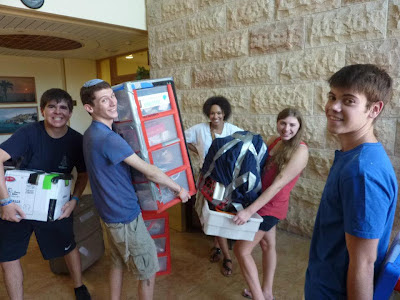I have long been an opponent of gambling. A decade ago I wrote a letter to the Michigan Daily newspaper about the consequences gambling addicts face and why it’s praiseworthy to try to deter young people from gambling. Here are some further thoughts about gambling in Jewish law and its moral prohibitions.
A fastidious hermeneutic approach addresses the question of morality and right action from a legal standpoint, something emphasised in the written and oral Jewish tradition over and over again in order to live a life of piety. Good exegesis also takes contextual clues into account when specific cases of ethical action are not tackled. After all, not every issue we face in modern society is delineated in the Tanakh (the canon of the Hebrew Bible, consisting of the Torah, the Nevi’im, or the Ketuvim – the equivalent of the Pentateuch, the books of Wisdom Poetry, and the canon of Major and Minor Prophets found respectively in the Old Testament); the Targumim (the orally transmitted, Rabbinic commentary of Jewish scripture); or the Talmud, a compendium of the Oral Torah and commentary on it consisting of the Mishnah and the Gemara.
Traditional philosophy and teaching in Judaism, while very clear on certain moral prohibitions and rituals such as kosher diet, the conducting of business, and observance of the Shabbat and religious holidays, is not black and white on every topic. Halakha, or the path a devout Jew is supposed to follow as outlined by the Jewish law, is open to interpretation in many cases, and a balanced hermeneutic will take certain themes and principals into account when addressing modern ethical questions like birth control techniques, biotechnology, and modern warfare. With that in mind, the issue of gambling stands as a case study in the interpretation and application of principles in Judaism to practice in Jewish life.
Cleromancy was a common activity in ancient times and with the proliferation of new bingo sites as this one, it is perhaps an even more pertinent question that needs addressing in this day and age. Gambling is not directly addressed in the Jewish scriptures, and is only partially elaborated on in various Rabbinic commentaries. For the Jew who wishes to be devout, kabbalah – the receiving of inner wisdom through prayerful meditation on scripture and use of God-given intuition – is something he will have to rely on to come to a conclusion that he can carry with a good conscience.
Let us take a look at some of the legal arguments made surrounding the morality of gambling according to Rabbinic texts; because there is nothing definitive on the matter, a look into general themes will be necessary to discern the moral course of action when it comes to gambling.
The Legality of Gambling
Divination is an activity whereby, in biblical times, the Jewish (or pagan) practitioner might have attempted to ascertain the will of Yahweh by ‘casting lots:’ the ostensibly random outcome of an event like rolling dice is considered the providence of the divine, thus the intention of the most high is revealed. This is something that is mentioned is several places in the Tanakh for different purposes: to decide which of a couple of goats should be offered to Yahweh and the deity Azazel in blood-atoning sacrifice (Leviticus 16: 810); to divide territory (Joshua 15 and Numbers 26: 15); in Jonathon’s affair (Samuel 14: 423); to decide the best time for Haman to destroy the Jews (Esther 3: 7); and perhaps most famously, to decide amongst the sailors who would be thrown off the boat for their culpability in causing a storm (this particular episode did not end well for the prophet as recounted in the eponymous book, Jonah 1: 7).
While casting lots was not gambling per se, the context of it being mentioned in the Torah, the Nevi’im, and the Ketuvim were enough for German halakhist (an authoritative commentator on proper legal and moral proceeding) Bacharach to conclude that raffle as an activity was a legitimate form of discerning the will of God through the winner of said endeavour. He quotes the Wisdom Poetry in Proverbs 16: 33 to support his exegesis: ‘the lot is cast into the lap; but the whole disposing thereof is of the Lord.’
The case of a trustworthy witness to testify in a Jewish court of law is brought up in the Mishnah (Rosh Ha-Shanah 1: 8 and Sanhedrin 3: 3). Of the two kinds mentioned, one type of gambler is a chronic bettor, has no occupation, and is disqualified as a candidate because he is deemed untrustworthy. The other type of gambler is considered a thief because he wins money from a loser who does not expect to lose, and thus relinquishes his losses reluctantly. This is considered a form of stealing by rabbis who argue that there is no legal entitlement to the earnings for the winner in this arrangement. While this may all sound esoteric, it forms a basis for the interpretation of an activity that, while common at the time and not considered egregious enough to outright deem a sin, was not looked kindly upon through the lens of Rabbinic analysis.
An Interpretation of Best Action
From the perspective of Kabbalah, following a wise life involves being a good steward of one’s time on earth; not fraternising with unscrupulous characters whose influence might rub off on you; or frivolously spending financial blessings on activities that are not investing in the amelioration of one’s surroundings or the community at large. The wise path, then, would dictate that if one is to partake in the activity of gambling, it should be with a keen awareness towards the temptation of addiction (the gambler with no other vocation first cited above is a close parallel to this vice). It should also be undertaken with a keen eye towards balance in the context of one’s life and leisure activity.
In other words, while gambling might not be recommendable, it is technically permissible, and should be approached cautiously. Pleasure is certainly a spiritual principle (see: Shir Hashirim, the Song of Songs), but can be pursued within moderation.







